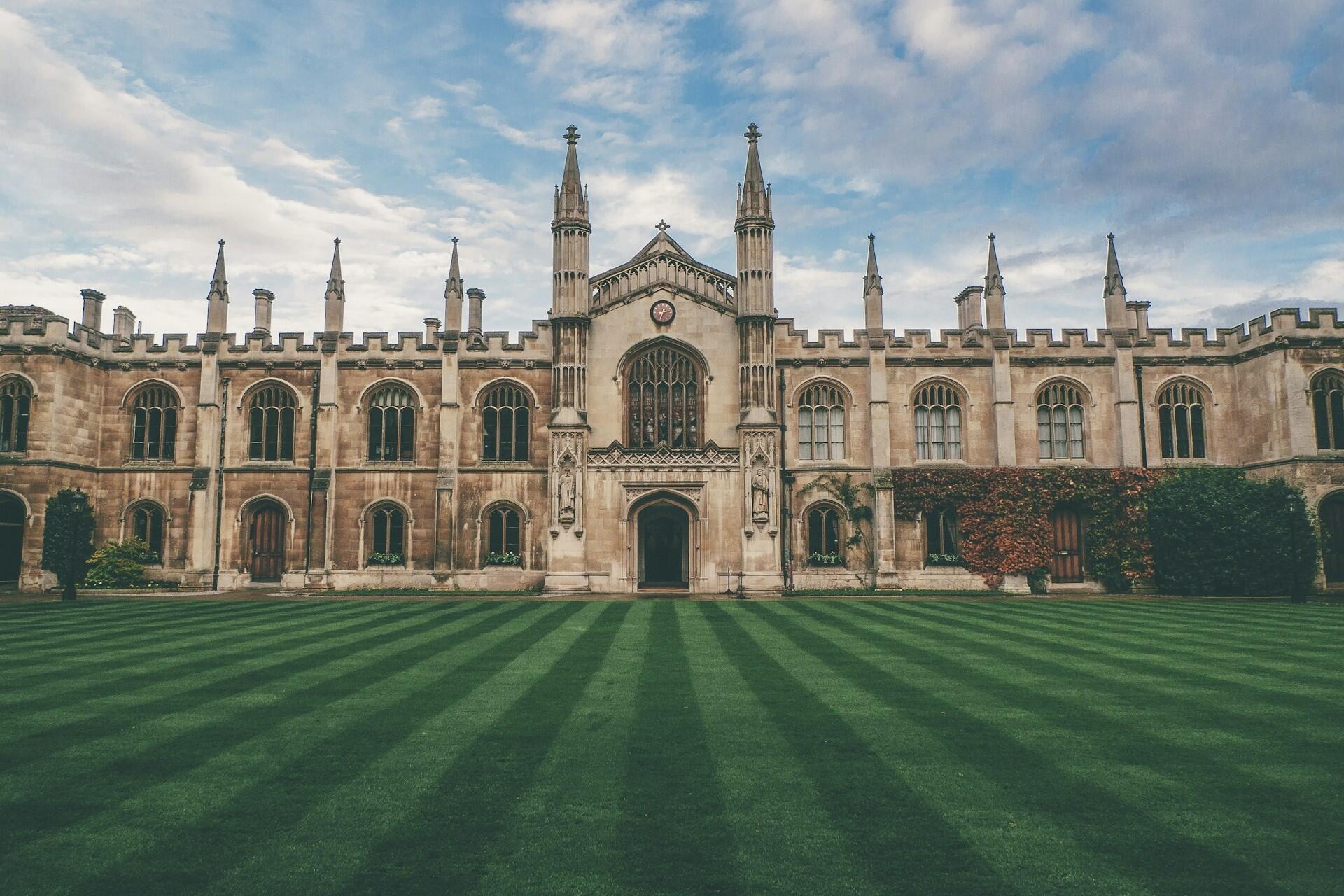What is the Cambridge Curriculum in New Zealand? The Cambridge curriculum NZ is overseen by CAIE (Cambridge Assessment International Education). It is an internationally recognised pathway that takes students from IGCSE in Year 11 to AS and A-levels in Years 12 and 13. In selected New Zealand schools, it offers an exam-focused alternative pathway to university, both in the country and at over 1,400 institutions worldwide. With subjects ranging from English and science to mathematics, the programme is ideal for families seeking global recognition, academic depth, and clear progression in their secondary school pathways.

How the Cambridge Curriculum Works in New Zealand
The Cambridge curriculum is offered by an increasing number of secondary schools in New Zealand as an alternative to the NCEA. The programme provides an internationally benchmarked education system that allows students to follow the same structure as in 160 other countries.
The Cambridge pathway in New Zealand typically begins in Year 11 with IGCSE, followed by AS and A Level in Years 12 and 13, with each stage designed to lead onto the next. Students have a clear academic pathway, and since the path is globally standardised, you can be confident that the qualifications earned in New Zealand carry the same weight anywhere else in the world.
More than 40 schools across New Zealand now offer the Cambridge pathway, giving families the option of an internationally recognised alternative to NCEA. The system is supported by the Association of Cambridge Schools in NZ (ACSNZ), which helps maintain quality and consistency nationwide.
The Cambridge Pathway: IGCSE, AS and A Levels
The Cambridge curriculum is built around a clear sequence of stages. Each one prepares students for the next. This means that students have a strong academic pathway from general study at IGCSE to subject specialisation at A Level. For students who know what they want to pursue at university, this is a great option.
Year 11
IGCSE
The International General Certificate of Secondary Education provides a broad foundation across core subjects such as English, mathematics, and science. Most students take between five and seven courses, building both knowledge and academic skills that will support advanced study.
Year 12
AS Level
The first half of the A Level qualification, AS courses go deeper into chosen subjects and introduce more advanced assessment requirements. Students can sit them as stand-alone exams or carry them forward into full A Levels.
Year 13
A Level
Considered one of the world’s leading secondary school qualifications, A Levels allow students to specialise in three or four subjects studied in depth. Performance is primarily determined by final examinations, and all New Zealand universities and thousands of international institutions widely accept results.
Subjects and Courses: From English to Cambridge Maths NZ
One of the best things about the Cambridge curriculum NZ is the wide range of subjects available. IGCSE-level students have a choice of over 70 courses in languages, humanities, sciences, and the arts. At this stage, students can gain a broad grounding before specialising in their favourite subjects.

Though students usually focus on three or four subjects at AS and A Level, there's still a wide range of subjects to choose from. Popular options include English literature, Biology, Chemistry, Physics, History, and Economics. However, there are also creative and applied fields, such as Art and Design or Business Studies. Students can tailor their programme to suit their interests and future university entrance requirements.
From English and sciences to the globally recognised Cambridge Maths NZ, the curriculum allows students to design an academic programme that reflects their strengths, interests, and long-term study goals.
Cambridge Maths NZ is one of the key subjects chosen, which can be done at IGCSE, AS Level, or A Level. Mathematics is offered in several pathways, including Pure Mathematics, Mechanics, and Statistics. If you’re deciding between pathways, our breakdown of Cambridge vs NCEA explains the major differences.
worldwide doing the Cambridge programmes.
Assessment, Grades, and Exam Results
One of the most considerable distinctions between the Cambridge curriculum and the NCEA or International Baccalaureate is how it's graded. Cambridge is exam-focused, and most grades are determined by external examinations set and marked by CAIE.
Students are also given a Percentage Uniform Mark (PUM). This indicates how secure they are within a grade boundary, but universities typically only consider the grade.
In New Zealand, most schools sit the November series. These exam results are released in mid-January. Some centres also offer the June series exams with the results available in August. Students access these exam results through the Candidate Results Portal, with the results being forwarded securely to the universities to which they've applied.
The Association of Cambridge Schools in New Zealand (ACSNZ) provides guidance, resources, and quality assurance for schools offering the Cambridge pathway. This ensures that teaching standards remain high and students receive the same internationally benchmarked education as their peers worldwide.

Why Families Choose the Cambridge Curriculum in NZ
The appeal of the Cambridge curriculum is its structure and global recognition. While NCEA may be more flexible, Cambridge is a clearly defined academic pathway from IGCSE to AS Levels and A Levels. Students can see how each year builds towards their long-term goals. There's value in this clarity, especially for students considering overseas universities or competitive entry fields like medicine, law, or engineering.

Since Cambridge is overseen by CAIE and delivered uniformly across the world, this consistency is highly valued by parents and students. They know that every student's qualifications will be benchmarked against international peers. Cambridge exam results are easy for global universities to interpret when assessing entry requirements.
At our school we offer both Cambridge and NCEA as two completely separate pathways. Each pathway offers a full complement of subjects. There is no streaming in both pathways; and the decision of which one to study is made by the student and their family.
Associate Principal, Auckland state school
Cambridge vs NCEA: Key Differences
Structure, assessment style, and recognition are among the key factors to consider when choosing between Cambridge and NCEA. Both systems are rigorous and respected, but they work in different ways. Ultimately, the choice is yours.

NCEA
- New Zealand’s national qualification is available in nearly every school.
- Based on credits earned from Achievement or Unit Standards.
- Combines internal assessments (essays, projects, practicals) with external exams in November.
- Graded as Not Achieved, Achieved, Merit, or Excellence.
- Flexible. Students can take subjects across different levels in the same year.
- Universally recognised for university entrance in New Zealand, with growing international recognition.
Cambridge
- Overseen by CAIE, with a globally consistent curriculum.
- Structured by subject: IGCSE (Year 11), AS (Year 12), A Level (Year 13).
- Assessment is heavily exam-based, with minimal coursework.
- Graded with international scales: IGCSE (A–G), AS (A–E), A Level (A–E)**.
- Focus on depth: students specialise in three or four senior subjects.
- Accepted by all NZ universities and more than 1,400 institutions worldwide.
IB vs Cambridge: How They Compare
Some places may also offer the International Baccalaureate. While we've mainly been focusing on how Cambridge compares to NCEA, it's worth knowing the differences between Cambridge and IB. Both of these are also recognised for university entrance around the world. IB is suitable for generalists who want an international approach to a broad range of subjects, whereas Cambridge is better suited for specialists.

IB (International Baccalaureate)
Students study six subjects across different groups, alongside core requirements like Theory of Knowledge, the Extended Essay, and CAS. It emphasises breadth, critical thinking, and global-mindedness.
Cambridge (CAIE)
Students specialise in fewer subjects at AS and A Level, developing deep academic knowledge. It emphasises mastery, exam performance, and internationally benchmarked grades.
universities accept the Cambridge curriuculum.
Preparing for Cambridge Exams in NZ
If you're doing Cambridge exams, consistent preparation is key, even if the exams all come at the end. It's common for New Zealand schools to sit the November exam series whose results are released in January.
You can also get support from schools, online resources, and private tutors. Whatever subject or skill you need help with, you can find qualified and experienced tutors on the Superprof website. Simply search for the topic you need help with and start browsing the tutors' profiles. With many offering the first session for free, you can always try a few before choosing the perfect tutor for you and your preferred learning style.
Summarise with AI:




















